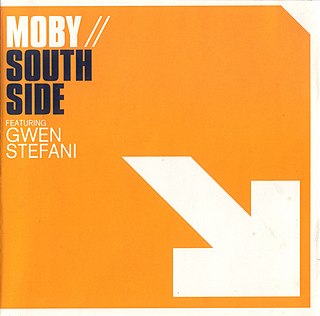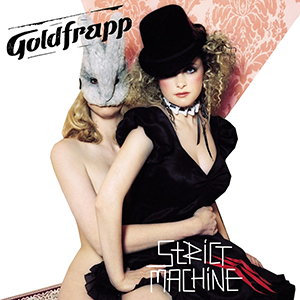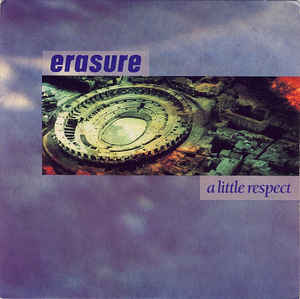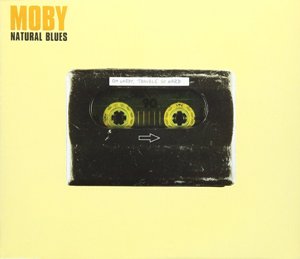
Play is the fifth studio album by American electronic musician Moby. It was released on May 17, 1999, through Mute Records internationally and V2 Records in North America. Recording of the album began in mid-1997, following the release of Moby's fourth album, Animal Rights (1996), which deviated from his electronica style; Moby's goal for Play was to return to electronica, blending downtempo with blues and roots music samples. Originally intended to be his final record, the album was recorded at Moby's home studio in Manhattan.

"South Side" is a song written and recorded by American electronica musician Moby. It was released to radio on October 10, 2000, as the seventh single from his fifth studio album, Play. Initially recorded with No Doubt frontwoman Gwen Stefani, production problems forced Moby to leave Stefani's vocals off the mix of the song included on Play; Stefani's vocals were then restored for the song's single release. The drums are sampled from "What's Up Front That Counts" by the Counts.

"Porcelain" is a song by American electronic musician Moby. It was released on April 25, 2000, as the sixth single from his fifth studio album Play (1999). Written by Moby, who also performs vocals on the recording, "Porcelain" is a melancholic song with lyrics reflecting on the breakup of a relationship. It features a lush musical backing that incorporates reversed strings and various synthesized elements. While Moby initially expressed disdain over the song and its production, he was eventually talked into including it on Play.

"I Feel You" is a song by English electronic music band Depeche Mode, released on 15 February 1993 by Mute as their 27th UK single and the first single from their eighth studio album, Songs of Faith and Devotion (1993). The song peaked at number eight on the UK Singles Chart and also made number one and number three on the US Billboard Modern Rock Tracks chart and the Billboard Hot Dance Club Play chart. It is one of the band's highest-charting singles worldwide. The accompanying music video was directed by Anton Corbijn.

"Condemnation" is a song by English electronic music band Depeche Mode, released on 13 September 1993 by Mute Records as the third single from the band eighth studio album, Songs of Faith and Devotion (1993). The song reached No. 9 on the UK Singles Chart, No. 3 in Sweden, and No. 1 in Portugal. Its music video was directed by Anton Corbijn.

"Strict Machine" is an electronic dance song written by British electronic music duo Goldfrapp and Nick Batt for Goldfrapp's second studio album, Black Cherry (2003). It was produced by Goldfrapp and describes laboratory rats in neuroscience experiments. Alison Goldfrapp read in a newspaper about experiments in which scientists stimulated rats' brains so that the rats would feel joy when following commands. She was inspired to write "Strict Machine" based on images of the experiment and "more human aspects of machines and sex and control". Actress Gwendoline Christie features on the record sleeve disguised in a rabbit mask.

"A Little Respect" is a song written and recorded by British synth-pop duo Erasure, released in September 1988 by Mute. It was written by Vince Clarke and Andy Bell. The lyrics are a plea to a lover to show compassion and respect. The heavily synthesized instrumentation is accentuated by acoustic guitar and Bell's vocal falsetto in the chorus. It was their tenth single and was taken from their third studio album, The Innocents (1988). Known as one of their signature songs, the single reached number four on the UK Singles Chart and was Erasure's second consecutive top-20 hit on the US Billboard Hot 100, where it made number 14, and reached number two on the US Billboard Dance Club Play chart.

"Drama!" is the first single released from English synth-pop duo Erasure's fourth studio album, Wild! (1989). Written by Vince Clarke and Andy Bell, the song begins with a low-key keyboard line and a subdued vocal from Bell. As the song progresses, the instrumentation and vocals become more hectic, ultimately ending as a full-blown dance track. "Drama!" contains a "Guilty!" exclamation throughout, provided by Scottish band the Jesus and Mary Chain, who were recording in the studio next door. The song was met with critical acclaim from both music critics and fans.

"Chorus" is a song by English synth-pop duo Erasure, released in June 1991 as the first single from their fifth studio album of the same name (1991). Produced by Martyn Phillips and written by Erasure members Vince Clarke and Andy Bell, the song features Clarke's electronic soundscapes and Phillips' computerised production. The single was released by Mute Records in the United Kingdom and Sire Records in the United States. It peaked at number three in both Denmark and the UK while reaching number four in Ireland. In the US, it peaked at number 83 on the Billboard Hot 100 and number four on the Billboard Modern Rock Tracks chart.

MobySongs 1993–1998, also known as Songs 1993–1998 or simply Mobysongs, is a compilation album by American electronica musician Moby. It features selections from his work released in North America on the Elektra label, before his breakout 1999 release, Play.

"Everytime You Touch Me" is a song by American electronica musician Moby, released on February 13, 1995 by Mute and Elektra, as the third single from his third studio album, Everything Is Wrong (1995). Guest vocals on the song are performed by Rozz Morehead and Kochie Banton. It became a number-one hit in Finland and reached the top 20 in Ireland, the Netherlands, and Scotland, as well as on the Canadian RPM Dance chart. Its music video was directed by Julie Hermelin.

"We Are All Made of Stars" is a song by American electronica musician Moby. It was released as the first single from his sixth studio album, 18 (2002), on April 1, 2002. It reached number 11 on the UK Singles Chart and became a top-10 hit in several other European countries.

The discography of American musician Moby consists of twenty-one studio albums, one live album, eleven compilation albums, twelve remix albums, three video albums, four extended plays, eighty-nine singles, fourteen promotional singles, a hundred and forty-nine music videos, and forty-four remixes.

"Natural Blues" is a song by American electronic musician Moby. It was released on March 6, 2000, as the fifth single from his fifth studio album, Play (1999). The song is built around vocals sampled from "Trouble So Hard" by American folk singer Vera Hall (1937). "Natural Blues" was one of several songs on Play produced by Moby based on samples obtained from albums of American folk music originally compiled by field collector Alan Lomax. In the United Kingdom, "Natural Blues" peaked at number 11 on the UK Singles Chart. In Iceland, it peaked at number one.

"Why Does My Heart Feel So Bad?" is a song by American electronica musician Moby. It was released on October 11, 1999, as the fourth single from his fifth studio album Play. It became a hit in several regions, including German-speaking Europe and the United Kingdom.

"Feeling So Real" is a song by American electronica musician Moby, released on October 1994 by Mute and Elektra, as the second single from the musician's third studio album, Everything Is Wrong (1995). The song features the phrases "sound system rocking my....." and "set it up DJ!" spoken by Kochie Banton, who also appears in Moby's following single, "Everytime You Touch Me". The guest vocalist for the song is Rozz Morehead. It peaked at number 30 on the UK Singles Chart, number nine on the US Billboard Dance Club Play chart, and number one on the Finnish Singles Chart. Julie Hermelin directed the song's accompanying music video.

"Honey" is a song by American electronic musician Moby. It was released as the lead single from his fifth studio album Play on August 24, 1998. The song samples the 1960 recording "Sometimes" by American blues singer Bessie Jones. Moby first heard "Sometimes" on a box set collection of folk music compiled by Alan Lomax, and subsequently composed "Honey" around vocal samples from the Jones song.

"Next Is the E" is a song by American electronica musician Moby, released in October 1992 by Instinct and Equator as the third single from his self-titled debut album (1992).

"Glory Box" is a song by English electronic band Portishead, released on 2 January 1995 by Go! Beat as the third and final single from their debut album, Dummy (1994). It samples "Ike's Rap II" by Isaac Hayes and peaked at number 13 on the UK Singles Chart. Additionally, the song was a top 10 hit in Iceland, while entering the top 20 in France, Ireland and Scotland.

"You Don't Love Me " is a song by Jamaican recording artist Dawn Penn, released in February 1994 by Big Beat as the first single from her first studio album, No, No, No (1994). The song's lyrics are credited to Penn, Bo Diddley and Willie Cobbs, and production was handled by Steely & Clevie.



















